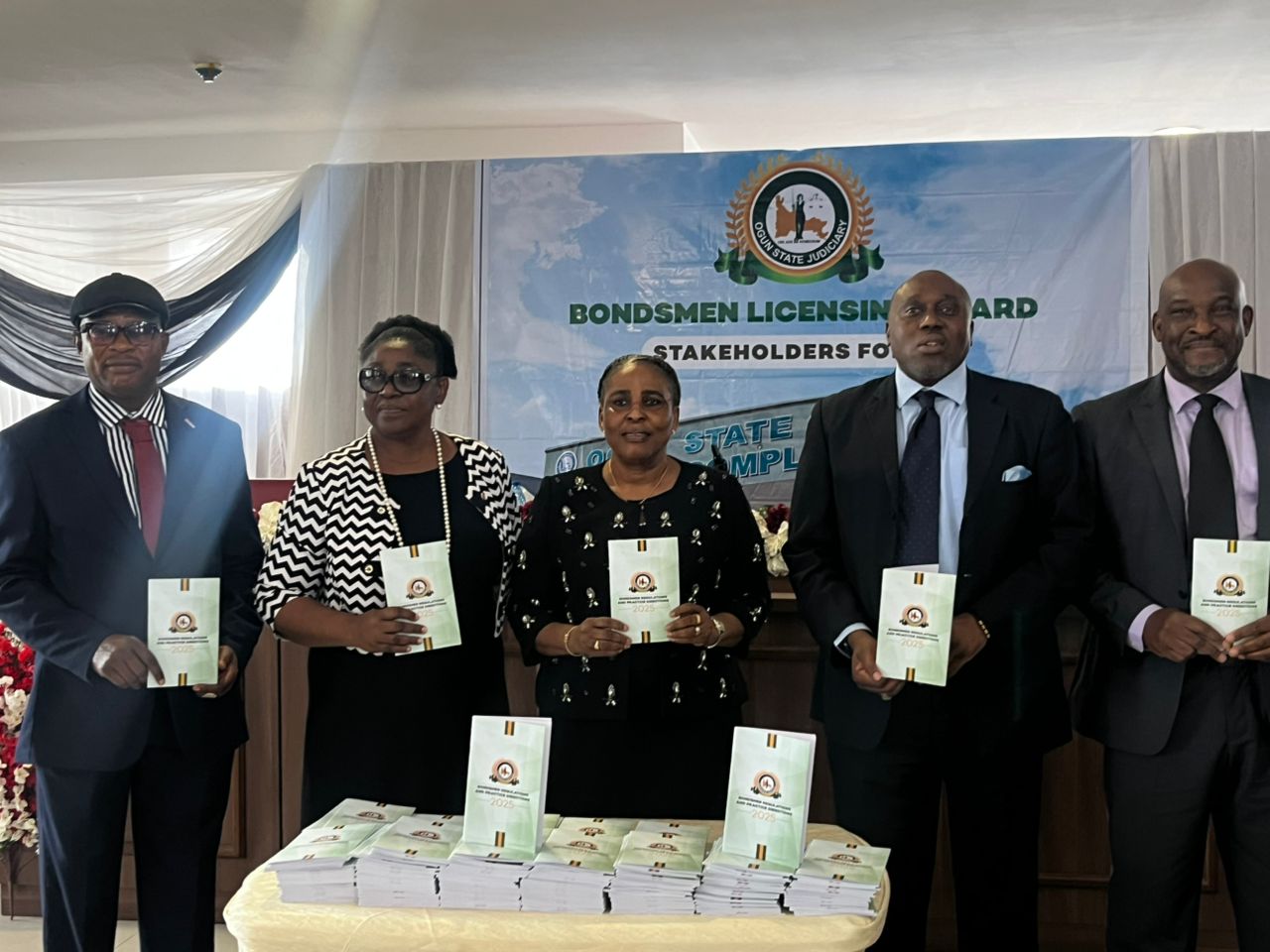The Chief Judge of Ogun State, Justice Mosunmola Dipeolu, said on Friday that more than 8,000 defendants have been granted bail and released under the Ogun Bondsmen Scheme since its inception five years ago.
Justice Dipeolu revealed that the scheme has played a pivotal role in curbing congestion in the state’s correctional facilities, while cleansing a bail system long plagued by corruption and inefficiency.
She made the disclosure while officially opening the second edition of the Bondsmen Stakeholders Forum at the Ceremonial Court, Judiciary Complex, Kobape Road, Abeokuta.
“When we last met, we celebrated the release of 2,800 defendants between January 2021 and October 2023. Today, I am delighted to report that between October 2023 and July 2025, this figure has grown exponentially.
“Thanks to the diligent work of our licensed bondsmen, Chrysalis Bail and Bond Limited and Egba Kelisco Bail and Bond Limited, we have now facilitated the release of over 8,000 defendants awaiting trial.
“This is not simply a statistic; it represents over 8,000 individuals whose rights to liberty and presumption of innocence have been preserved, significantly alleviating the immense pressure on our correctional institutions,” she said.
The Chief Judge stressed that the progress made over the years is a testament to the effectiveness of the scheme and a key achievement of her administration’s seven-point agenda.
She also announced the licensing of a new company, Praise and Moremi Bail and Bonds Limited, which brings the total number of licensed bondsmen operating in the state to three.
However, Justice Dipeolu acknowledged challenges such as defendants absconding after being granted bail, noting this has necessitated the introduction of the 2025 Bondsmen Regulations.
She explained that this enhanced regulatory framework is designed to build upon the progress achieved, strengthening and standardising the operation of the scheme.
The Chief Judge urged bondsmen to embrace the judiciary’s digital vision by adopting technology and innovating their processes to align with this digital future.
“Our vision is to integrate the bondsmen system into a centralised digital platform. Imagine a future where bail applications, surety verifications, bondsmen engagements, and court notifications are processed seamlessly through a single portal.
“This will drastically reduce paperwork, minimise human interaction and potential corruption, and provide real-time data for better management across the justice chain.
“In pursuit of this goal, we established a digital database in January 2025 that captures information on all defendants granted bail through bondsmen — an important first step towards digitising the entire bail process,” she added.
Speaking at the event, the Chairman of the Ogun State Bondsmen Licensing Board, Justice Olugboyega Ogunfowora, praised the scheme’s contribution to prison decongestion but reported that out of 243 cases of defendants absconding, 212 have been swiftly rearrested due to the robust system in place.
Justice Ogunfowora stated that the scheme has helped eradicate the menace of fake sureties, touts, and corrupt civil servants seeking fees, while also creating employment opportunities, with the two bondsmen companies collectively employing over 80 staff.
He highlighted the launch of a Centralised Bondsmen Database — a digital platform offering real-time data on all defendants released through bondsmen, tracking court dates and appearances seamlessly, and fostering a fraud-proof ecosystem.
The state’s bond administrator, Mr Olakulehin Oke, described innovations in the 2025 Bondsmen Regulations, including increased financial thresholds for licence categories: Category A raised from ₦10 million to ₦20 million and above, Category B from ₦5 million to ₦15 million, and Category C from ₦5 million to ₦10 million.
Oke warned that any bondsman with three clients absconding within six months will have their licence revoked, while others who flout regulations face up to a four-year ban, among additional measures to enhance the scheme’s success.
Prison congestion remains a major challenge to the administration of justice in Nigeria, often exacerbated when individuals who should be free await trial because they cannot meet bail conditions.
Initiatives such as the bondsmen scheme, alongside periodic exercises granting freedom to inmates on compassionate or health grounds by the President, state governors, and Chief Judges, are vital in addressing this issue.
Justice Dipeolu also revealed that at least 149 inmates have been released from various correctional facilities in Ogun State this year during the judiciary’s jail delivery exercise.































